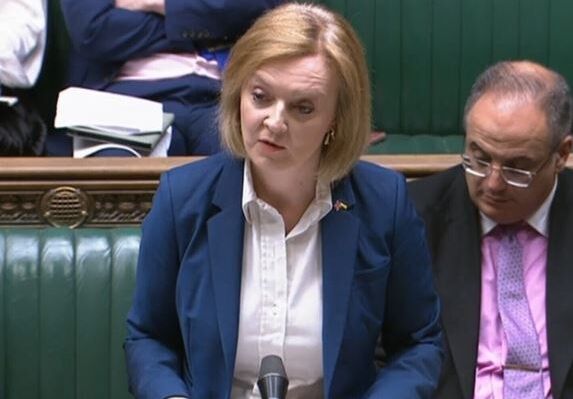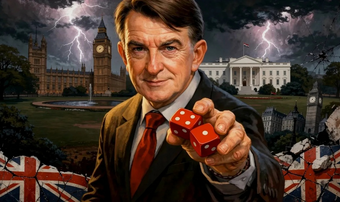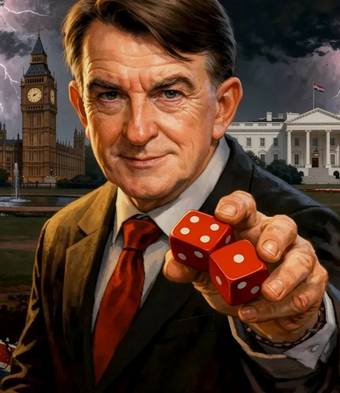Conservative Party Conference: What should we make of Liz Truss' speech?

After a bruising week, on Wednesday, the new prime minister addressed the Conservative party conference. Having admitted in an interview last Sunday that she should have “laid the ground better”, Liz Truss was under huge pressure to amend her divisive mini-budget.
During the conference, she and her chancellor Kwasi Kwarteng had been forced into a U-turn following a party backlash against plans to drop the 45p rate of tax. Among others, Michael Gove, one of the most experienced Tory members, had heavily criticised Truss’ initial decision – stating such a move set out the “wrong values”. Former Cabinet Minister Grant Shapps went further by saying Truss would lose a Commons vote if she stayed the course and cut the 45p top rate of tax.
With all that in mind, there was seemingly no better option on Tuesday but to drop the policy. With a mutinous party and some MPs even talking about removing her, the PM needed to use her speech to rally her party.
Whilst Truss has displayed a sense of satisfaction with how her speech went, it has not gone without criticism either. Her speech was disrupted for several minutes by two female protestors who work for Greenpeace. The environmental group later commented on the interference stating they were there to display their objection to Truss “shredding” the Conservative party’s environmental commitments.
Several political correspondents have voiced their opinions on Truss’ keynote speech, some commenting on Truss' confident delivery despite the ongoing inner Tory tensions. For others, the speech lacked concrete acknowledgment of our current economic reality.
CARE is not party political. We’ve been listening carefully to what the different parties are saying during this conference season. Since our beginning, we’ve worked with politicians across the political spectrum.
With this experience, I offer a couple of reflections on Liz Truss’s speech.
Firstly, she’s defined her premiership as being all about growth. This is a laudable aim. It is true that if the economy grows, that means there is more funding for critical projects, whether it’s support for the most vulnerable, or helping increase wages to mitigate the cost of living.
However, there is a danger if growth becomes an all-consuming obsession. When that happens, you can spook the financial markets (as happened after the mini-budget) and in turn, this can lead to inflation rising, interest rates rising and when that happens, it’s those on lowest incomes who are hit the hardest.
It is also fair to say there are plenty of different opinions about how you get growth. The Labour Party, for example, has said it is for growth as well. But they would advocate for a different way of getting there. For example, they would say you should be applying windfall taxes to big oil companies to generate more public money.
The point is, it is entirely possible to agree about an end goal but disagree about how to get there. When you find yourself disagreeing, the best thing we can all do is listen well. This is an underappreciated biblical command. Scripture says “everyone should be quick to listen, slow to speak and slow to anger” (James 1:19). That applies in political debate as it does anywhere else. Let’s be willing to listen when we disagree. And let’s pray the Prime Minister and her Cabinet are equally willing to listen.
There’s another observation I’ll make. Politicians today are fond of saying they’ve been decisive and doing what needs to be done. Some like to position themselves as Saviours who are able to rescue us from whatever predicament we might be facing: covid-19, cost of living, war in Ukraine, threat of winter blackouts.
This has particularly been the case in recent years, with personality cults arising in ways we haven’t seen before around figures like Boris Johnson, Donald Trump or Jeremy Corbyn. Loyalty to party has become subservient to loyalty to a person, and dissenting voices have been written off as ‘not true Conservatives/Labour supporters’, even when what is being objected to is pretty indefensible.
For those who believe in Jesus Christ we see through some of this bluster. Our society’s hope is not ultimately in politicians, who inevitably, like any of us, make mistakes and get things wrong, but in a King who is far above every other ruler and always knows and does what is best. The only person able to save anyone is Jesus Christ. So, leaders must be aware of assuming a role they are simply not able to fulfil.
As ever, the most pressing need is for Christians to see their responsibility to pray for our leaders and to bring their influence, as light and salt, to bear in conversations with neighbours and family about politics.
Let’s show our willingness to listen, even to those with whom we disagree. And let’s keep our hope placed in King Jesus.






